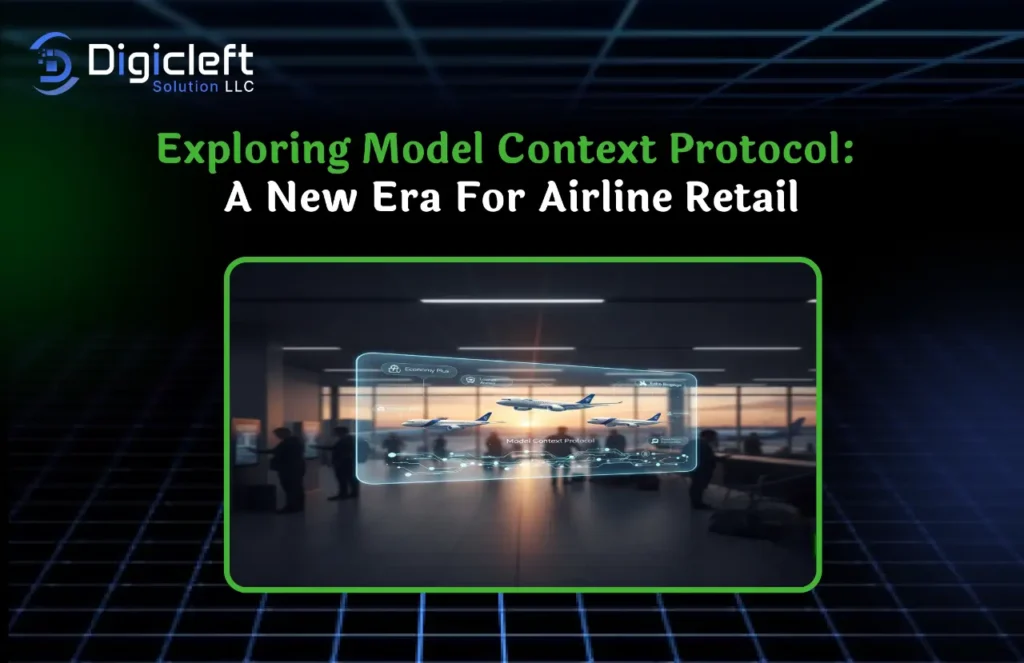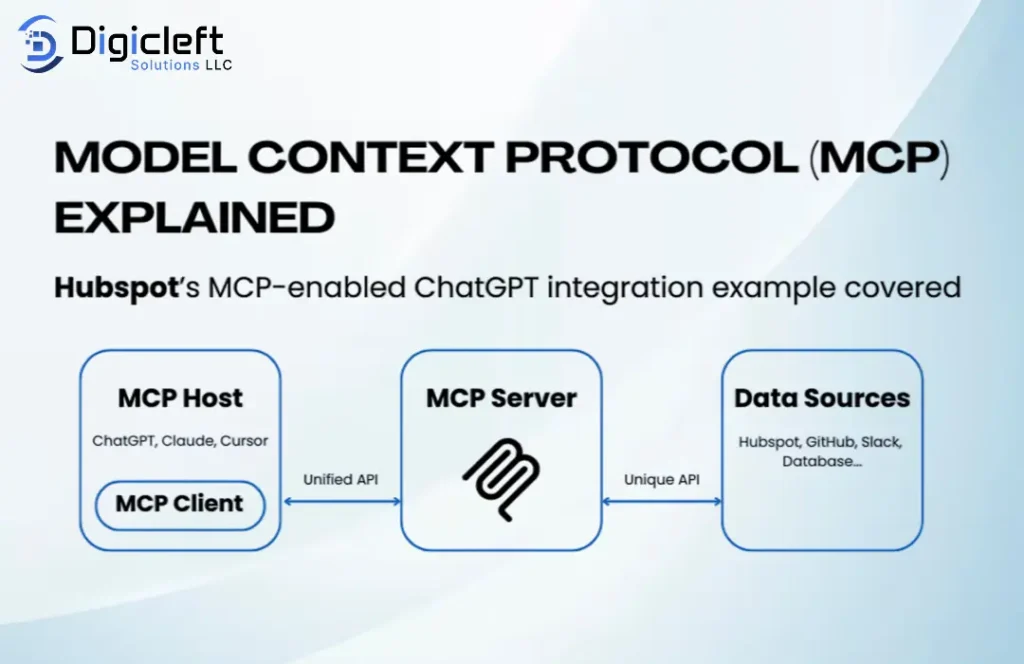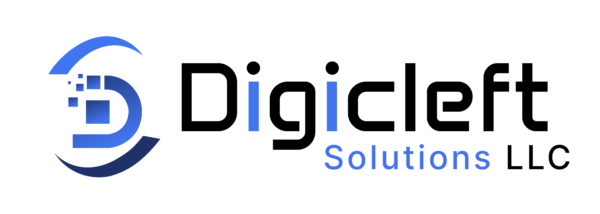
The airline industry is going through a major metamorphosis and not just in the skies. Beyond the cockpit and cabin, airlines are redefining how they sell. The old model of static fares and limited ancillaries just doesn’t cut it anymore. Travelers now expect the same kind of personalized, dynamic shopping experience they get from Amazon or Netflix.
Enter the Model Context Protocol (MCP) an advanced approach that’s rethinking airline retail from the ground up. With help from innovators like Digicleft Solution, airlines can bridge the gap between data, personalization, and customer experience.
What Is Model Context Protocol (MCP)?
At its core, Model Context Protocol is a new way for digital systems including airline retail platforms to communicate intelligently. It standardizes how contextual information (like customer preferences, trip stages, and real-time conditions) is exchanged between models.
Think of MCP as a translator that ensures every system pricing engines, loyalty programs, reservation portals, and AI assistants “understands” each other and acts in harmony.
How MCP Is Revolutionizing Airline Retail
For decades, airlines have relied on rigid fare classes and predefined bundles. MCP breaks down those walls. It allows AI-powered systems to deliver offers that adapt to context who the traveler is, where they’re going, what they’ve bought before, and what’s happening at that moment.
Instead of offering a “one-size-fits-all” seat upgrade, airlines can present the right offer at the right time perhaps a Wi-Fi pass, lounge access, or a comfort meal pack tailored to a traveler’s unique journey.
The Shift From Sale to Experience
Modern travelers don’t just want to buy a flight they want a connected experience. MCP enables airlines to shift their focus from selling tickets to curating end-to-end journeys.
It’s like moving from being a ticket counter to being a lifestyle platform. Airlines can now enhance every touchpoint from booking to boarding making the traveler feel seen and understood.
Integration of MCP with Airline Systems
Adopting new technology can sound intimidating, but MCP was designed to integrate seamlessly with existing airline systems. It uses API-based communication, making it compatible with traditional PSS (Passenger Service Systems) and emerging digital ecosystems.
This means airlines don’t need to rebuild their infrastructure; they can evolve it. The MCP framework acts as the connective layer that brings old and new systems into harmony.
The Role of Data in MCP
Data is the fuel of MCP. Unlike traditional systems that just collect data, MCP interprets it. It understands context who the traveler is, what they value, and when they’re most receptive.
For example, MCP doesn’t just note that a passenger is flying business class; it understands why maybe it’s a last-minute business trip or a special occasion and adapts offers accordingly.
Passenger-Centric Merchandising
In the MCP world, every traveler’s experience is unique. Imagine an airline retail platform that automatically adjusts recommendations based on real-time needs offering a healthy meal to a fitness enthusiast or fast Wi-Fi to a remote worker.
This passenger-centric approach transforms loyalty programs, making them truly personalized rather than transactional.
How Digicleft Solution Is Driving MCP Innovation
Companies like Digicleft Solution are at the forefront of this change. With expertise in AI-driven personalization and contextual data analytics, Digicleft helps airlines integrate MCP principles into their retail ecosystems.
- Decode traveler behavior through advanced analytics
- Deliver real-time offer personalization engines
- Streamline backend integrations without disrupting operations
In essence, Digicleft Solution empowers airlines to turn technology into a seamless, human-centered experience.

Benefits of Model Context Protocol for Airlines
- Revenue Growth: By matching offers to customer intent, airlines can increase ancillary sales significantly.
- Operational Efficiency: Simplified integrations enable faster innovation cycles.
- Smarter Decision-Making: Unified context allows for data-driven strategies.
- Stronger Brand Loyalty: Personalized engagement fosters emotional connections with passengers.
Benefits for Passengers
For passengers, MCP means less friction and more delight. No more irrelevant add-ons or confusing bundles just timely, relevant offers that feel tailor-made.
Imagine checking in online and being offered the exact seat type, meal preference, or in-flight service that suits your style without having to search for it. That’s the kind of seamless personalization MCP makes possible.
MCP and the Future of Airline Ecosystems
The beauty of MCP is its open collaboration model. Airlines, hotels, car rentals, and even tourism companies can share contextual data creating connected ecosystems.
When a traveler books a flight, MCP could automatically offer a hotel deal or a car rental option synced with arrival time creating a smooth, end-to-end journey.
Challenges and Considerations
- Data Privacy: Ensuring personal data is handled securely and ethically.
- Legacy Integration: Some older systems may resist integration.
- Training Needs: Staff must adapt to new digital workflows.
These are growing pains, not roadblocks. The long-term benefits far outweigh the initial challenges.
Real-World Use Cases of MCP
- Smart Ancillary Upselling: Offering Wi-Fi, meals, or upgrades based on trip context.
- Adaptive Loyalty Programs: Adjusting rewards based on passenger engagement.
- Contextual Offers: Suggesting lounge access for delayed flights or discounts for return trips.
These examples show how MCP brings intelligence and empathy into airline merchandising.
The Future of Airline Retail with MCP
Looking ahead, MCP will become the backbone of predictive, personalized airline retail. As AI models evolve, MCP will help them communicate seamlessly making airline ecosystems smarter and more human-centric.
In this new era, success won’t come from selling the cheapest ticket but from delivering the most meaningful experience. And that’s exactly what MCP and forward-thinking companies like Digicleft Solution are creating.
Conclusion
The Model Context Protocol isn’t just a technical innovation it’s a philosophy. It redefines how airlines view their passengers and how they connect through data, context, and empathy.
As MCP reshapes the future of airline retail, one thing is clear: passengers will no longer be mere “bookings” they’ll be individuals whose preferences matter at every step. With Digicleft Solution guiding this evolution, the sky is truly the limit.
FAQs
- What makes Model Context Protocol unique for airlines? MCP focuses on contextual communication, enabling systems to share passenger insights intelligently for personalized offers.
- How does Digicleft Solution help airlines adopt MCP? They provide AI-driven integration, analytics, and digital transformation frameworks tailored for airline retail.
- Can MCP improve loyalty programs? Absolutely. MCP helps airlines personalize rewards, making loyalty more relevant and engaging.
- Is implementing MCP expensive? Initial setup may require investment, but the ROI from personalized offers and operational efficiency quickly outweighs the cost.
- Will passengers notice the change? Yes, but subtly. They’ll experience smoother, smarter, and more intuitive interactions without seeing the technology behind it.


